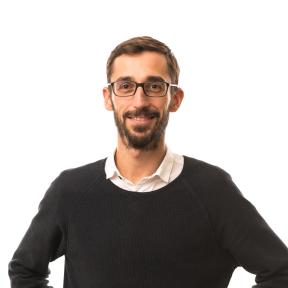Publicly funded trials are crucial to cure more cancer patients

Publicly funded trials are crucial to cure more cancer patients
We need new drugs, new devices and new technology to improve the outcome of cancer patients. Everyone can agree on this.
But adding new tools to our cancer toolbox is not enough. This is what we revealed in a column in the Journal of Law, Medicine and Ethics (https://www.ncbi.nlm.nih.gov/pubmed/31560624).
We reviewed the sponsorship and funding of randomised controlled trials (RCTs) demonstrating life-extending outcomes in non-small cell lung cancer.
We wanted to see, using lung cancer as an example, what the respective contributions of the industry and of academia were, in terms of survival gains.
What did we find out?
First, we could confirm what may sound obvious to most people: pharma companies bring new tools to treat patients with advanced cancers. However, while those tools extend patients’ lives - on average of several months – they rarely cure them.
Second, we could bring to the light that academic, public funded, trials not only can prolong lives but also can cure cancer patients. They cure more patients thanks to the identification of better surgery, better radiotherapy and better use of existing drugs.
These very important data bring us to two strong messages that are almost unheard.
- Once a new tool has joined the cancer toolbox, work is not over.
If a new drug is shown to extend the life of uncurable patients for a few months, will it also have the potential to maybe cure more, potentially curable, patients? Additional trials are necessary to answer this question. Some of these trials might be done by the companies but most will not. Simply because a company has to maximise shareholder profit (https://politicaldig.com/big-pharma-ceo-says-profits-over-people/). Indeed, many trials that oncologists would like to be conducted, are not going to help with shareholder profit and therefore need either strong lobbying on companies, or public funding to happen.
- Not only drugs can save lives
Our ‘pharmacophilia’ makes us - strongly (https://www.ncbi.nlm.nih.gov/pubmed/20634806) but wrongly – believe that only drugs will save more lives. Any surgeon or radiotherapist will tell you how unfair this assumption is.
Surgery and radiotherapy has already cured and improved the lives of many cancer patients (https://www.ncbi.nlm.nih.gov/pubmed/30061587). But still, most of the credit and therefore most of the research funding goes to drug trials. Again, for new surgery and radiotherapy trials to happen, public funding is necessary.
Our deep-rooted human ‘technophilia’ tends to make us focus on the next new, and hopefully, big thing and prevents us from seeing the great achievements that existing tools can accomplish. We, at the Anticancer Fund, are fully aware of this and do all we can to support the trials that will ultimately cure more patients, using existing tools in an innovative way.
Read the full article here.

